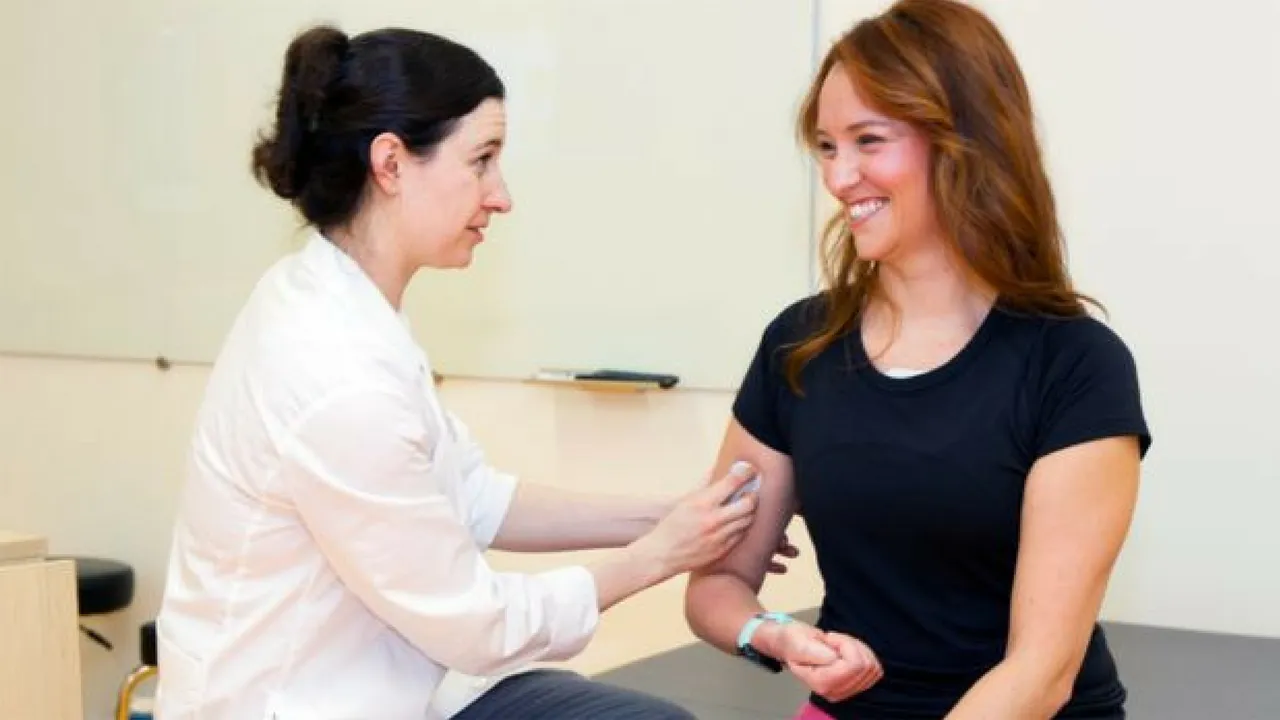Scientists within the America square measure developing wearable sensors to hurry up the recovery of stroke patients.

The sensors square measure able to send data to doctors unendingly.
The team developing the system says it might permit therapists to additional closely monitor the effectiveness of their care.
Details of the study were discharged at the recent annual meeting of the yankee Association for the Advancement of Science in Lone-Star State.
Lizzy McAninch had a stroke 2 years past. She couldn't move or speak or swallow for many weeks.
Lizzy is testing out wearable sensors that may speed her recovery.
They look like cabbage butterfly projecting plasters, however they send data wirelessly to her medical team.
She could be a doctor herself and might see however they may facilitate her.
"This technology to place sensors on the body to assess that muscle teams work or not will very pinpoint the areas plagued by the stroke and might target therapies to specifically improve those problems," she told BBC News.
The sensors still remand readings even when she has finished her exercises. this suggests that her healer Kristen Hohl, from the Shirley Ryan AbilityLab in Chicago, will monitor her progress reception.
"As a healer, i feel regarding what my patients do reception. square measure they able to carry through the recommendations i am giving them as a healer to try and do additional? will we see that they're walking more or will we see them partaking in conversations?
"Those square {measure} the kinds of things that I will get feedback from the sensors wherever presently I actually have to think about what they tell me they need done."
The challenge for the scientists was to pack plenty of natural philosophy on to alittle versatile material and still create it comfy for the patient to wear for a protracted time.
"It is sort of automatically unseeable to the patient World Health Organization is carrying the device," per John Rogers, of Northwestern University in Chicago, World Health Organization developed the sensors.
"And you'll be able to imbed all styles of advanced device practicality, microchip computing capability, power provides and wireless local area network into this terribly uncommon platform, which is that the individuality of what we have a tendency to do."
